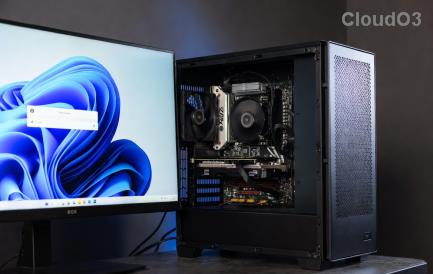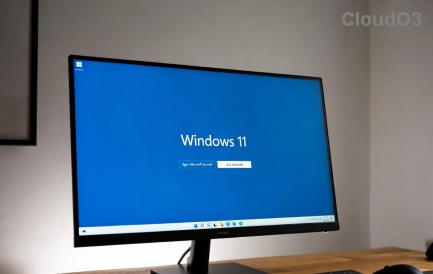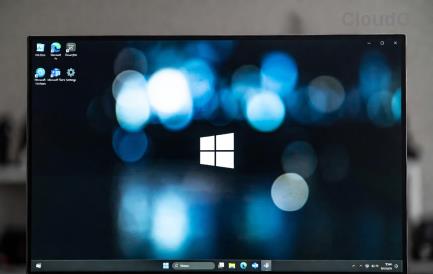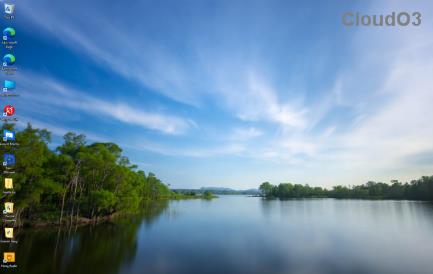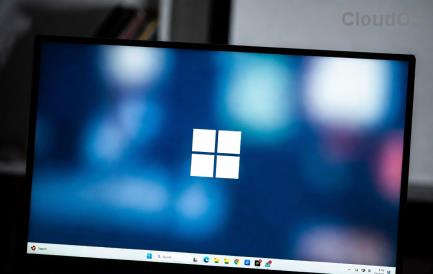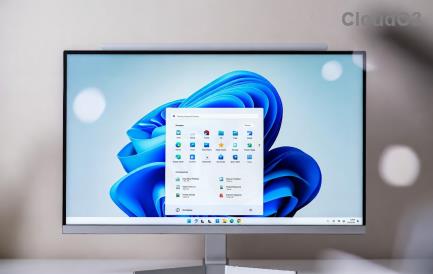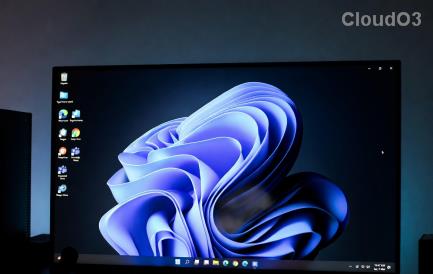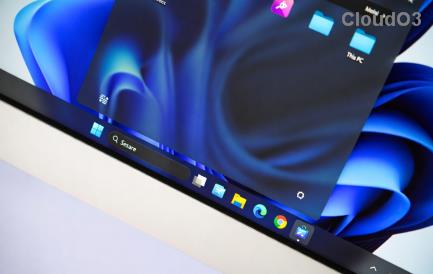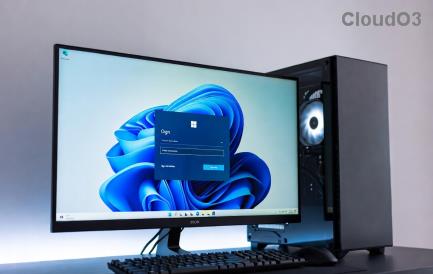หากคุณกำลังอัปเกรดเป็นพีซีเครื่องใหม่ คุณอาจกำลังพยายามใช้ฮาร์ดไดรฟ์จากพีซีเครื่องเก่าของคุณซ้ำ ถ้าไม่เช่นนั้น คุณอาจกำลังวางแผนที่จะมอบให้สมาชิกในครอบครัวหรือเพื่อน แต่ก่อนที่คุณจะดำเนินการตามตัวเลือกเหล่านี้ คุณควรล้างฮาร์ดไดรฟ์เก่าของคุณให้หมดเสียก่อน เพื่อให้บุคคลต่อไปเริ่มต้นใหม่กับฮาร์ดไดรฟ์
ในบทความนี้เราจะครอบคลุมหลายวิธีในการเช็ดฮาร์ดไดรฟ์ในWindows ที่ 11
สารบัญ
ทำไมคุณควรล้างฮาร์ดไดรฟ์?
ก่อนที่เราจะข้ามไปที่วิธีการ ให้ใช้เวลาสักครู่เพื่อทำความเข้าใจว่าทำไมคุณควรล้างฮาร์ดไดรฟ์ของคุณ
เหตุผลที่ชัดเจนมากขึ้นเบื้องหลังเช็ดฮาร์ดไดรฟ์คือการล้างทั้งหมดของไฟล์ส่วนบุคคลของคุณและการใช้งานจากไดรฟ์ทำให้แน่ใจว่าพวกเขาจะไม่สามารถกู้คืนโดยเครื่องมือการกู้คืนข้อมูล - หลังจากที่มีการตั้งโรงงานหรือไม่ อีกเหตุผลหนึ่งในการล้างข้อมูลในไดรฟ์ก็คือการเพิ่มพื้นที่จัดเก็บสำหรับไฟล์ใหม่ของคุณ หรือบางทีคุณแค่ต้องการตั้งค่าพีซีตั้งแต่เริ่มต้นด้วยการติดตั้ง Windows ใหม่ทั้งหมดและพาร์ติชั่นใหม่สำหรับฮาร์ดไดรฟ์ของคุณ
ไม่ว่าจะด้วยเหตุผลใดก็ตาม มาดูข้อกำหนดเบื้องต้นในการล้างข้อมูลฮาร์ดไดรฟ์ของคุณ
สิ่งที่ต้องทำก่อนเช็ดฮาร์ดไดรฟ์
ก่อนที่คุณจะล้างข้อมูลในไดรฟ์ มีสองสิ่งที่คุณต้องดูแล
- ตรวจสอบให้แน่ใจว่าคุณได้คัดลอกเนื้อหาทั้งหมดของไดรฟ์ไปยังตำแหน่งอื่นแล้ว เพื่อป้องกันข้อมูลสูญหาย
- หากคุณกำลังใช้แล็ปท็อปเพื่อล้างข้อมูลในไดรฟ์ เราขอแนะนำให้เชื่อมต่อแล็ปท็อปกับแหล่งจ่ายไฟ เนื่องจากวิธีการบางอย่างอาจใช้เวลานานกว่าจะเสร็จสมบูรณ์
- ปิดแอปพลิเคชันหรือไฟล์ที่อาจเรียกใช้จากฮาร์ดไดรฟ์ที่คุณพยายามจะล้างข้อมูล
มาดูวิธีการล้างฮาร์ดไดรฟ์ใน Windows 11 กัน
ที่เกี่ยวข้อง: วิธีการแมปไดรฟ์ใน Windows 11
วิธีฟอร์แมตไดรฟ์ใน Windows 11 หรือ 10
คุณสามารถฟอร์แมตไดรฟ์ได้หลายวิธีขึ้นอยู่กับประเภทของการเข้าถึงระบบของคุณ ใช้หนึ่งในคำแนะนำด้านล่างที่เหมาะสมกับสถานการณ์และข้อกำหนดในปัจจุบันของคุณมากที่สุด
นี่เป็นวิธีที่ง่ายและรวดเร็วที่สุดในการล้างฮาร์ดไดรฟ์อย่างไม่ต้องสงสัย กระบวนการนี้ใช้เวลาเพียงไม่กี่วินาที และเหมาะสำหรับเมื่อคุณต้องการเพิ่มที่ว่างสำหรับไฟล์ใหม่บนฮาร์ดไดรฟ์ของคุณ
หมายเหตุ:วิธีนี้จะใช้ได้เฉพาะกับไดรฟ์รองในระบบของคุณ ไม่ใช่ไดรฟ์สำหรับเริ่มระบบ
นี่คือขั้นตอน
กดWin key + rเพื่อเปิดกล่อง Run พิมพ์ 'explorer' แล้วกด Enter
คุณจะเห็นหน้าต่างชื่อ 'File Explorer' เปิดขึ้น คลิกที่ 'พีซีเครื่องนี้'

ตอนนี้คุณควรเห็นไดรฟ์ทั้งหมดที่เชื่อมต่อกับพีซีของคุณ ไดรฟ์ของเรามีสามไดรฟ์ ซึ่งเราจะใช้ไดรฟ์ 'ข้อมูล' สำหรับคู่มือนี้

สิ่งที่คุณต้องทำคือคลิกขวาที่ไดรฟ์ที่คุณต้องการล้างข้อมูล แล้วคลิก 'รูปแบบ'

คุณควรเห็นป๊อปอัป 'รูปแบบ' ขนาดเล็กเปิดขึ้นพร้อมตัวเลือกมากมาย หากคุณต้องการล้างข้อมูลอย่างรวดเร็ว โดยไม่รบกวนตัวเลือกอื่นๆ ให้คลิกที่ปุ่ม 'เริ่ม'
เคล็ดลับ:เพื่อการล้างข้อมูลที่ปลอดภัยยิ่งขึ้น ให้ยกเลิกการเลือกตัวเลือก 'รูปแบบด่วน' จากนั้นคลิกที่ 'เริ่ม' โปรดทราบว่าการล้างข้อมูลอย่างละเอียดจะใช้เวลานานกว่าการจัดรูปแบบด่วน

เมื่อการล้างข้อมูลเสร็จสิ้น คุณจะเห็นข้อความยืนยันเช่นเดียวกัน คลิก 'ตกลง' เพื่อปิดการแจ้งเตือน
ไดรฟ์ของคุณสะอาดหมดจดและพร้อมใช้งานอีกครั้ง
วิธีที่ #2: การใช้การจัดการดิสก์
เปิดเมนู Start แล้วพิมพ์ 'Disk Management' คลิกที่ผลการค้นหาหรือปุ่มเปิด

เครื่องมือการจัดการดิสก์มีลักษณะดังนี้

คลิกขวาที่โวลุ่มที่คุณต้องการล้าง แล้วคลิกรูปแบบ

ในป๊อปอัปถัดไป คุณควรมีตัวเลือกบางอย่าง เช่น การเปลี่ยนชื่อโวลุ่ม ระบบไฟล์ และอื่นๆ
เช่นเดียวกับวิธีก่อนหน้านี้ คุณควรทำเครื่องหมายตัวเลือก 'ดำเนินการจัดรูปแบบด่วน' ไว้ หากคุณไม่ต้องการรอเป็นเวลานานเพื่อล้างข้อมูลในไดรฟ์
เคล็ดลับ:หากต้องการล้างข้อมูลอย่างละเอียดซึ่งควรลบร่องรอยข้อมูลทั้งหมดออกจากไดรฟ์ ให้ยกเลิกการเลือกตัวเลือก "ดำเนินการจัดรูปแบบด่วน"
คลิกที่ปุ่ม 'ตกลง' เพื่อเริ่มล้างข้อมูลในไดรฟ์ของคุณ

คลิกที่ปุ่ม 'ตกลง' เพื่อยืนยันการล้างข้อมูล และไดรฟ์ของคุณควรสะอาดภายในไม่กี่นาที
วิธีที่ #3: การใช้ Diskpart ใน CMD (พรอมต์คำสั่ง)
Diskpart เป็นยูทิลิตี้บรรทัดคำสั่งที่สามารถใช้เพื่อจัดการไดรฟ์ทั้งหมดที่เชื่อมต่อกับพีซีของคุณ คุณสามารถทำทุกอย่างได้ตั้งแต่การแสดงรายการดิสก์ การสร้างและการลบพาร์ติชั่น และอื่นๆ อีกมากมายด้วย diskpart
มาดูกันว่าคุณจะล้างฮาร์ดไดรฟ์ด้วย diskpart ได้อย่างไร
กดWin key + rเพื่อเปิดกล่อง Run พิมพ์ 'cmd' แล้วกดCtrl + Shift + Enterแป้นแทนแป้น Enter ซึ่งจะเป็นการเปิด Command Prompt ขึ้น
เส้นทางเริ่มต้นจาก Command Prompt ที่ยกระดับควรมีลักษณะดังนี้

พิมพ์ 'diskpart' แล้วกด Enter ตอนนี้คุณควรจะอยู่ในยูทิลิตี้ diskpart

พิมพ์ 'list disk' แล้วกด Enter นี่ควรแสดงรายการดิสก์ทั้งหมดที่เชื่อมต่อกับพีซีของคุณ

หากต้องการดำเนินการล้างข้อมูลในดิสก์ ให้พิมพ์ 'select disk ' แล็ปท็อปของเรามีฮาร์ดไดรฟ์สองตัว และสำหรับคู่มือนี้ เราจะดำเนินการกับดิสก์ 1 ดังนั้นเราจึงป้อน 'select disk 1' และกด Enter

พิมพ์ 'สะอาด' แล้วกด Enter

ดิสก์ของคุณควรว่างเปล่าโดยสมบูรณ์และเปลี่ยนเป็นพื้นที่ที่ไม่ได้ถูกจัดสรร งานต่อไปของคุณควรสร้างพาร์ติชั่นโดยใช้เครื่องมือการจัดการดิสก์ที่เราใช้ก่อนหน้านี้ เพียงเรียกใช้เครื่องมือและเริ่มต้นดิสก์ หลังจากนั้น คุณควรจะสามารถสร้างพาร์ติชั่นขนาดใดก็ได้ที่เหมาะกับคุณที่สุด
วิธีที่ #4: การใช้ตัวเลือกการรีเซ็ต
Windows 11 มาพร้อมกับตัวเลือก 'รีเซ็ตพีซีเครื่องนี้' ซึ่งจะรีเซ็ต Windows เป็นการตั้งค่าจากโรงงาน และส่วนที่ดีที่สุดเกี่ยวกับการรีเซ็ตพีซีเครื่องนี้ก็คือ มันให้ตัวเลือกแก่ผู้ใช้ในการเก็บไฟล์ทั้งหมดและรีเซ็ต Windows หรือลบทุกอย่างขณะรีเซ็ต Windows
หากคุณกำลังจะล้างข้อมูลในไดรฟ์เพื่อติดตั้ง Windows ใหม่ เราขอแนะนำให้คุณลองใช้วิธีนี้ก่อนดำเนินการติดตั้งใหม่ทั้งหมด
นี่คือวิธีที่คุณสามารถทำได้
เปิดเมนู Start แล้วพิมพ์ 'Reset this PC' คลิกที่ผลการค้นหาที่ปรากฏขึ้นหรือคลิกที่ปุ่มเปิด

คลิกที่ปุ่ม 'รีเซ็ตพีซี' เพื่อเรียกใช้กระบวนการรีเซ็ต Windows

คุณควรเห็นหน้าจอสีน้ำเงินพร้อมสองตัวเลือก คลิกที่ 'ลบทุกอย่าง' เพื่อติดตั้ง Windows ใหม่ในขณะที่ลบไฟล์ แอพ และการตั้งค่าทั้งหมดของคุณ

หน้าจอถัดไปจะถามคุณว่าคุณต้องการติดตั้ง Windows ใหม่อย่างไร หากพีซีของคุณมีการเชื่อมต่ออินเทอร์เน็ต คุณสามารถใช้ตัวเลือก 'การดาวน์โหลดบนคลาวด์' หรือดำเนินการ 'ติดตั้งใหม่ภายในเครื่อง'

ทำตามคำแนะนำบนหน้าจอที่เหลือ และในเวลาไม่นาน คุณจะมีพีซีของคุณพร้อมด้วยการติดตั้ง Windows 11 ใหม่ และไม่มีร่องรอยของไฟล์และแอปเก่าของคุณบนฮาร์ดไดรฟ์ของคุณ
วิธีที่ #5: การใช้ PowerShell
คุณยังสามารถฟอร์แมตไดรฟ์โดยใช้ PowerShell ทำตามขั้นตอนด้านล่างเพื่อฟอร์แมตไดรฟ์โดยใช้ PowerShell บน Windows 11
กดWindows + Sบนแป้นพิมพ์และค้นหา PowerShell คลิก 'เรียกใช้ในฐานะผู้ดูแลระบบ' เมื่อปรากฏในผลการค้นหาของคุณ
พิมพ์คำสั่งต่อไปนี้เพื่อรับรายการโวลุ่มทั้งหมดจากดิสก์ที่ติดตั้งในระบบของคุณ ซึ่งจะช่วยคุณระบุและค้นหาดิสก์ที่คุณต้องการฟอร์แมต
get-volume

เลือกโวลุ่มที่คุณต้องการจัดรูปแบบแล้วใช้คำสั่งด้านล่างเพื่อเลือก แทนที่ X ด้วยตัวอักษรที่กำหนดให้กับเล่มที่เกี่ยวข้อง
select X

ตอนนี้ใช้คำสั่งด้านล่างเพื่อจัดรูปแบบโวลุ่มที่เลือก แทนที่ NAME ด้วยชื่อที่คุณเลือกซึ่งจะถูกกำหนดให้กับโวลุ่มเมื่อได้รับการฟอร์แมตแล้ว
format-volume -filesystem NTFS -newfilesystemlabel NAME

และนั่นแหล่ะ! โวลุ่มที่เลือกบนไดรฟ์ที่เกี่ยวข้องจะได้รับการฟอร์แมตแล้ว รอให้กระบวนการเสร็จสิ้นและปิด PowerShell เพื่อใช้ดิสก์ตามปกติ
วิธีที่ #6: การใช้ยูทิลิตี้ของบริษัทอื่น
มีตัวจัดการพาร์ติชั่นมากมายที่สามารถช่วยคุณจัดการและฟอร��แมตดิสก์ทั้งหมดที่ติดตั้งบนระบบของคุณได้อย่างง่ายดาย ทำตามคำแนะนำด้านล่างเพื่อเริ่มต้นใช้งาน เราจะใช้ Gnome Partition Manager สำหรับคู่มือนี้ ซึ่งเป็นเครื่องมืออุตสาหกรรมที่ไว้วางใจได้ยาวนานและใช้งานได้ฟรีโดยสมบูรณ์ ใช้ลิงก์ด้านล่างเพื่อดาวน์โหลดลงในที่จัดเก็บในเครื่องของคุณ
เมื่อดาวน์โหลด GParted ลงในระบบของคุณแล้ว คุณก็สามารถติดตั้งได้เหมือนกับ ISO อื่นๆ และเริ่มต้นได้เลย หากคุณต้องการทำความสะอาดและล้างไดรฟ์สำหรับบูต เราขอแนะนำให้คุณเมานต์ ISO กับสื่อแบบถอดได้ ซึ่งจะช่วยให้คุณสามารถฟอร์แมตไดรฟ์นอกการติดตั้ง Windows 11 ปัจจุบันของคุณได้ เมื่อติดตั้งแล้ว ให้รีสตาร์ทระบบและเข้าถึง Gnome Partition Manager จากเมนูการบูตของคุณ เราจะใช้ Rufus เพื่อเมาต์ดิสก์อิมเมจกับสื่อแบบถอดได้ จากนั้นรีบูตระบบปัจจุบันของเรา
หมายเหตุ:ตรวจสอบให้แน่ใจว่าได้ปิดใช้งานการบู๊ตอย่างปลอดภัยบนระบบของคุณ เพื่อให้คุณสามารถบูตจาก USB ได้ นอกจากนี้ ให้เปลี่ยนการกำหนดค่าการจัดเก็บข้อมูลของคุณเป็น AHCI แทนหน่วยความจำ Intel Optane หากมี GParted จะไม่รู้จักไดรฟ์ของคุณหากไม่ได้ตั้งค่าการกำหนดค่าพื้นที่เก็บข้อมูลเป็น AHCI
เมื่อคุณบูตเข้าสู่ไดรฟ์ USB คุณจะมีตัวเลือกในการเปิด GParted ด้วยการตั้งค่าต่างๆ เราขอแนะนำให้คุณเลือกตัวเลือกแรกและเลือก 'เปิด GParted ด้วยการตั้งค่าเริ่มต้น'

คุณจะได้รับข้อความให้เลือกคีย์แมป หน้านี้มีประโยชน์ในกรณีที่ Gnome รู้จักแป้นพิมพ์ของคุณอย่างไม่ถูกต้อง หากแป้นพิมพ์ของคุณตอบสนองได้ ให้เลือก 'อย่าแตะคีย์แมป' เพื่อดำเนินการตามขั้นตอน

ตอนนี้ไปข้างหน้าและเลือกภาษาของคุณโดยป้อนหมายเลขที่เกี่ยวข้อง ป้อน '33' หากคุณต้องการเลือกภาษาอังกฤษแบบสหรัฐอเมริกา

คุณจะถูกถามว่าคุณต้องการโหลด GParted ด้วยโปรแกรมควบคุมวิดีโอบังคับหรือการตั้งค่าเริ่มต้นหรือไม่ ตัวเลือกบังคับใช้โปรแกรมควบคุมวิดีโอมีประโยชน์ในกรณีที่ GParted ไม่รู้จักจอแสดงผลของคุณ หรือหากคุณมีปัญหาด้านความละเอียดในระบบของคุณ เราขอแนะนำให้คุณเลือกตัวเลือกแรก ป้อน '0' เพื่อเลือกตัวเลือก

GParted จะถูกบูตและคุณจะถูกนำไปที่เดสก์ท็อปชั่วคราว ตัวจัดการพาร์ติชั่นควรเปิดโดยอัตโนมัติบนระบบของคุณทันที คลิกเมนูแบบเลื่อนลงที่ด้านบนซ้ายและเลือกดิสก์ที่คุณต้องการจัดรูปแบบ

ตอนนี้คุณจะได้รับรายการโวลุ่มที่มีอยู่บนดิสก์ที่เลือก คลิกและเลือกโวลุ่มที่คุณต้องการจัดรูปแบบ

ตอนนี้คลิกที่ 'พาร์ทิชัน' ที่ด้านบนแล้ววางเมาส์เหนือ 'จัดรูปแบบเป็น'

เลือกรูปแบบไดรฟ์ที่คุณต้องการ แต่ขอแนะนำให้ฟอร์แมตไดรฟ์เป็น NTFS สำหรับระบบที่ทันสมัยทั้งหมด

เมื่อคุณเลือกรูปแบบดิสก์ที่ต้องการแล้ว GParted จะแจ้งการดำเนินการปัจจุบันในรายการงาน คลิกเครื่องหมายถูกในแถบเครื่องมือที่งานเพื่อดำเนินการงานที่คิว

คลิกที่ 'สมัคร' เพื่อยืนยันการเลือกของคุณ

GParted จะดำเนินการตามที่จำเป็น และไดรฟ์ข้อมูลที่เลือกควรได้รับการฟอร์แมตโดยอัตโนมัติเมื่อสิ้นสุดกระบวนการนี้ ปิดยูทิลิตี้ GParted และคลิกที่ไอคอนพลังงานบนเดสก์ท็อป คลิกและเลือก 'เริ่มต้นใหม่' จากนั้นคลิกที่ 'ตกลง'
บูตเข้าสู่ BIOS ในระบบของคุณและย้อนกลับการเปลี่ยนแปลงที่คุณทำไว้ก่อนหน้านี้ ซึ่งรวมถึงการเปิดใช้งานการบู๊ตอย่างปลอดภัย การเปลี่ยนการกำหนดค่าพื้นที่เก็บข้อมูลกลับเป็นการตั้งค่าเริ่มต้น และการเปลี่ยนลำดับอุปกรณ์บู๊ตของคุณ
เมื่อคุณเปลี่ยนกลับการเปลี่ยนแปลงแล้ว ให้ถอดปลั๊ก USB ของคุณและออกจาก BIOS ในขณะที่บันทึกการเปลี่ยนแปลงที่คุณทำไว้
ขณะนี้ คุณจะบูตเข้าสู่ Windows ได้ตามปกติ และไดรฟ์ข้อมูลที่เลือกควรได้รับการฟอร์แมตและล้างข้อมูลในระบบของคุณแล้ว
วิธี #7 จากการกู้คืน
หากคุณอยู่ใน Windows Recovery Environment และไม่สามารถบูตเข้าสู่ Windows ได้ คุณสามารถใช้คำแนะนำด้านล่างเพื่อฟอร์แมตไดรฟ์ในระบบของคุณ โปรดทราบว่าไม่แนะนำให้ฟอร์แมตไดรฟ์สำหรับบูตโดยใช้คำแนะนำด้านล่างจากสภาพแวดล้อมการกู้คืน เนื่องจากอาจทำให้เกิดปัญหากับไดรฟ์สำหรับเริ่มระบบและทำให้ระบบไม่รู้จัก จากนั้นคุณจะต้องฟอร์แมตไดรฟ์ให้สมบูรณ์และตั้งค่าอีกครั้งและติดตั้ง Windows เวอร์ชันใหม่ลงไป ดังนั้น ให้ใช้คำแนะนำด้านล่างเพื่อฟอร์แมตไดรฟ์รองจากสภาพแวดล้อมการกู้คืนเท่านั้น หรือตรวจสอบให้แน่ใจว่าคุณมีสื่อการติดตั้ง Windows 11 ที่มีประโยชน์ในการติดตั้งระบบปฏิบัติการที่คุณจะนำออกจากไดรฟ์สำหรับเริ่มระบบใหม่
เมื่อคุณอยู่ในหน้าจอการกู้คืนของ Windows หรือการแก้ไขปัญหา ให้คลิกและเลือก 'ตัวเลือกขั้นสูง'

คลิกที่ 'แก้ไขปัญหา'

เลือก 'ตัวเลือกขั้นสูง' อีกครั้ง

ตอนนี้คลิกที่ 'พรอมต์คำสั่ง' เพื่อเปิดพรอมต์คำสั่ง

พิมพ์คำสั่งต่อไปนี้เพื่อเปิดยูทิลิตี้ diskpart
diskpart

ตอนนี้รันคำสั่งต่อไปนี้
list volume

ค้นหาโวลุ่มที่คุณต้องการจัดรูปแบบและใช้คำสั่งด้านล่างเพื่อเลือก แทนที่ X ด้วยหมายเลขเฉพาะของโวลุ่มที่คุณเลือก
select volume x

ตอนนี้ใช้คำสั่งต่อไปนี้เพื่อจัดรูปแบบโวลุ่มที่เลือกด้วย NTFS เป็นรูปแบบ แทนที่ NAME ด้วยชื่อที่คุณต้องการตั้งโวลุ่มที่ฟอร์แมตใหม่
format fs=ntfs quick label=NAME

ปล่อยให้ diskpart ทำสิ่งนั้นและโวลุ่มควรได้รับการฟอร์แมตภายในไม่กี่วินาที เมื่อจัดรูปแบบแล้ว ให้พิมพ์คำสั่งต่อไปนี้เพื่อออกจาก CMD
exit

ตอนนี้รีสตาร์ทพีซีของคุณและควรฟอร์แมตโวลุ่มที่เลือกในระบบของคุณ
วิธีที่ #8: การใช้ Windows Setup
คุณยังสามารถฟอร์แมตไดรฟ์ได้โดยตรงโดยใช้การตั้งค่า Windows ด้วยเช่นกัน คุณสามารถออกจากการตั้งค่าหรือดำเนินการติดตั้ง Windows บนไดรฟ์ที่ฟอร์แมตใหม่ได้ ทั้งนี้ขึ้นอยู่กับความต้องการของคุณ
เปิดใช้การตั้งค่า Windows จากสื่อการติดตั้งเมื่อได้รับแจ้งเมื่อบูต เมื่อตั้งค่าเริ่มต้นแล้ว ให้เลือกภาษาของคุณและคลิก 'ถัดไป'
คลิกที่ 'ติดตั้ง Windows'
Windows Setup จะตรวจพบไดรฟ์ที่ติดตั้งในระบบของคุณ คลิกและเลือกไดรฟ์ที่คุณต้องการฟอร์แมตแล้วคลิก 'ฟอร์แมตไดรฟ์' ที่ด้านล่าง
ยืนยันการเลือกของคุณและ Windows จะดำเนินการฟอร์แมตไดรฟ์ที่เลือก
และนั่นแหล่ะ! เมื่อฟอร์แมตไดรฟ์แล้ว คุณสามารถฟอร์แมตไดรฟ์อื่นในระบบของคุณต่อโดยใช้การตั้งค่า หรือดำเนินการติดตั้ง Windows ต่อตามความต้องการของคุณ
วิธีฟอร์แมตไดรฟ์อย่างสมบูรณ์ใน Windows 11 หรือ 10
Completely formatting a drive is a little different from the traditional format methods listed above. While the above-listed methods will delete all your data from the drive, the existing partitions will remain. Additionally, if it is the boot drive that we are talking about then you will also have recovery and EFI partitions on the drive. While this shouldn’t be an issue on your system, they can cause problems when switching systems as the boot order or the recovery media can be recognized incorrectly by the new system.
In such cases, you can wipe all partitions from a drive and completely format it. You can then create new partitions and volumes on the drive depending on the need of the new system that you are switching to. Follow one of the guides below to completely format a drive and remove all partitions and volumes.
Method #1: From a third-party utility
If you wish to completely format your drive using a third-party utility then we recommend using the Gnome Partition Manager. This is an open-source and completely free utility hosted on Sourceforge. You can even compile the binaries on your own in case the privacy is a concern. Follow the guide below to get you started. The Gnome Partition Manager is available in ISO format which allows you to mount it to a removable media and use it individually as well, in case you are looking to completely format your boot drive. Use Rufus to create a USB installation media using the Gnome Partition Manager ISO.
Required
- Gnome Partition Manager | Gnome Partition Manager
- AHCI Storage mode enabled in BIOS
- Secure boot disabled in BIOS
- Boot device order changed (if needed to boot from USB on your system)
Guide
Make the necessary BIOS changes on your system and plug in the GParted USB into your system. Once plugged in, reboot your device and boot from the USB by pressing a key if prompted.
You will now be at the GParted Splash Screen where you will be requested to select the relevant version of GParted that you wish to use. We recommend you select the first one which is GParted Live with default settings.

Once booted, you will be prompted to change your keymap if needed. If your keyboard seems to be working as intended, select ‘Don’t touch keymap’ or use one of the other options to get keyboard working within Gnome.

Select your preferred language by entering its relevant number. Use number 33 for US English.

Now if you wish to manually install or configure your video output then enter 1 on the next screen. Else if the resolution and video response times seem to be fine for now then enter ‘0’.

GParted will now boot with the dictated settings. Once launched, you will be taken to the temporary desktop where the GParted utility will be launched automatically. Click on the drop-down menu in the top right corner and select the desired disk that you wish to completely format.

Now select a volume on the selected disk and click on ‘Partition’ at the top. Select ‘Format to’ and then select ‘NTFS’.

Repeat the steps above for all the partitions on the disk. Once each partition is cued for formatting, click on the checkmark in your toolbar to execute these tasks.

Confirm your choice by clicking on ‘Apply’.

All the selected partitions will now be formatted. We can now delete these partitions. Click and select each partition one by one and then click on the X in your toolbar. This will cue each partition for deletion.

Click on the checkmark again to delete all the selected partitions.

Confirm your choice by clicking on ‘Apply’.

Once all partitions are deleted from the disk, click and select the unallocated volume on the disk and then click on ‘New’ at the top. If you have an existing primary partition on the disk then select that partition and click on the ‘Resize’ icon instead.

Select the entire size of your disk and enter a name for your disk beside the label text field. If resizing an existing partition, use the slider at the top to drag it to the maximum size.

Click on ‘Ok’ or ‘Resize/Move’ depending on your choice.

And that’s it! Your entire drive should now be formatted and a single partition equal to the entire size of your drive should now be created which will allow you to use the drive, however, you wish. You can now exit GParted by clicking on the power icon on the desktop. Once rebooting, boot into your BIOS and revert the changes you made earlier. Once reverted, unplug the USB and boot into Windows normally.
Method #2: From CMD
Diskpart is a hugely versatile utility that can be used to completely format a drive as well. Once completely formatted via diskpart, you will need to set your disk as GPT or MBR depending on your platform needs for the drive to be recognized properly.
Launch CMD using one of the guides above depending on the current state of your system. Once CMD is launched, enter the command below to launch diskpart.
diskpart

Now enter the following command and find the disk you wish to completely format.
list disk

Note down the concerned disk’s number and use the command below to select it. Replace N with the disk number you noted down earlier.
select disk N

Now enter the command below to clean your disk.
clean

We will now need to create a partition on the selected disk so that it is usable. Enter the command below to get started.
create partition primary

Use the command below to format the newly created volume now.
format fs=ntfs

Enter the following command to assign a letter to the drive. Replace X with the letter of your choice.
assign letter=X

And that’s it! The selected drive should now be completely formatted. Any recovery or EFI partitions on the drive should also now be deleted.
How to switch between MBR and GPT
MBR and GPT are types of disk setups that are used to install new OS on a drive. These types are essential in case you are trying to switch between platforms or use Linux on yoru system. While GPT is a new disk setup with various advantages, MBR is still the most compatible setup format out there. If you are trying to switch your disk setup from MBR to GPT or vice versa then you can use the guide below to change the disk type.
Note: When converting, your disk will be cleaned and all the data will be removed from it. You will need to create new partitions on the drive as well so ensure that you have backed up your data before proceeding with the guide below.
Launch CMD on your system either from the recovery environment or from within Windows depending on the current state of your system. Once launched enter the command below to launch the diskpart utility.
diskpart

Now enter the following command to get a list of all the disks on your system. Note down the number for the concerned list so that you can access it later on.
list disk

Enter the following command and replace N with the disk number you noted down earlier.
select disk N

Use the command below to clean the drive.
clean

Now let’s convert the drive to your desired disk type. Replace TYPE with MBR or GPT depending on your current requirements.
convert TYPE

Once the disk has been converted, use the command below to create a primary partition.
create partition primary

Now use the command below to assign a letter to the drive. Replace X with the drive letter of your choice.
assign letter=X

And that’s it! You will now have converted the selected drive to GPT or MBR depending on your current requirements.
How to create new volumes and partitions
Once you have formatted your drives you will find that it is not that easy to use them within Windows. Formatted drives need dedicated partitions which can then be used as storage spaces to store your data or install an OS. Use the guide below to create custom partitions for a selected drive in Windows 11.
Method #1: From CMD
Launch CMD and use the command below to enter diskpart.
diskpart

Enter the following command to get a list of all the disks installed on your system. Note down the disk number of the concerned disk.
list disk

Now enter the command below and replace N with the disk number you noted down earlier.
select disk N

Use the command below to create a custom partition on the selected disk drive. If a partition already exists on the drive then replace ‘primary’ with ‘extended’. Additionally, replace XXXX with the size of your choice for the partition. The size is measured in megabytes where 1000MB = 1GB.
create partition primary size=SIZE

Now enter the following command. Your newly created partition will now show up in this list. Note down its volume number
list volume

Enter the following command and replace N with the volume number you noted down earlier.
select volume N

Now use the following command to assign a letter to the selected volume. Replace X with the letter of your choice.
assign letter=X

And that’s it! You will now have created a new partition on the selected drive depending on your current needs and requirements.
Method #2: From Disk Management
You can also create a new partition son your system using the Disk Management utility provided within Windows. Use the guide below to get you started.
Press Windows + R on your keyboard and type in the following. Press Enter on your keyboard to launch the disk management utility.
diskmgmt.msc

Once the disk management utility is launched, you will get a graphical representation for all your drives. Right-click on the unallocated space at the bottom of your screen and click on ‘New Simple Volume’.

The volume creation wizard will now be launched. Click on ‘Next’ to get started.

Select a custom size if needed. By default, Windows will use the entire unallocated space to create a new simple volume on your drive. Click on ‘Next’ once you have set the desired size.

Choose a drive letter for your new volume now. Click on ‘Next’ once you are done.

You will now be given the option to format the unallocated space before the volume is created. Choose your disk format by clicking on the drop-down menu and set a name for the new volume beside Volume Label. If you do not wish to format the unallocated space, then click and select ‘Do not format this volume’. Click on ‘Next once you are done.

Finally, click on ‘Finish’ and the new volume will now start being created.

And that’s it! A new volume should now be created on the selected drive.
We hope this guide helped you easily format or wipe your drive in Windows 11 depending on your current needs and requirements. If you face any issues or have any questions for us, feel free to reach out to us using the comments section below.
Related:
